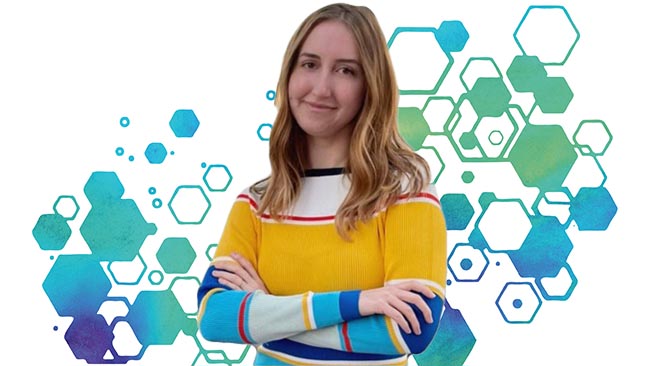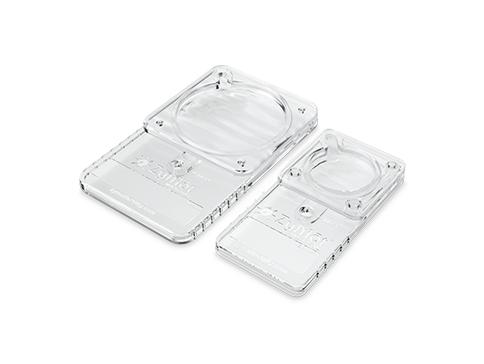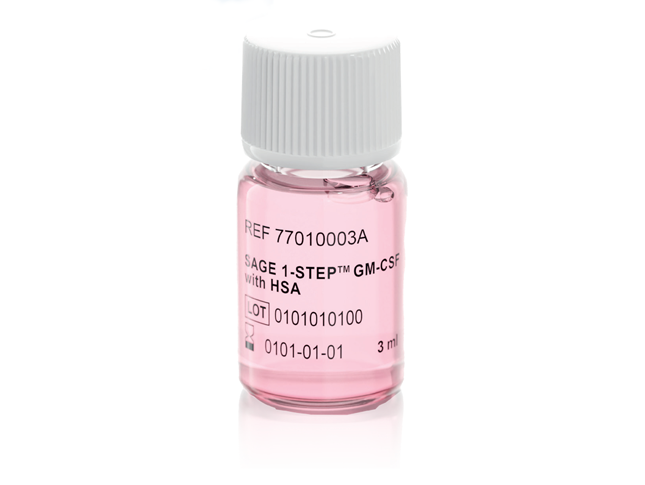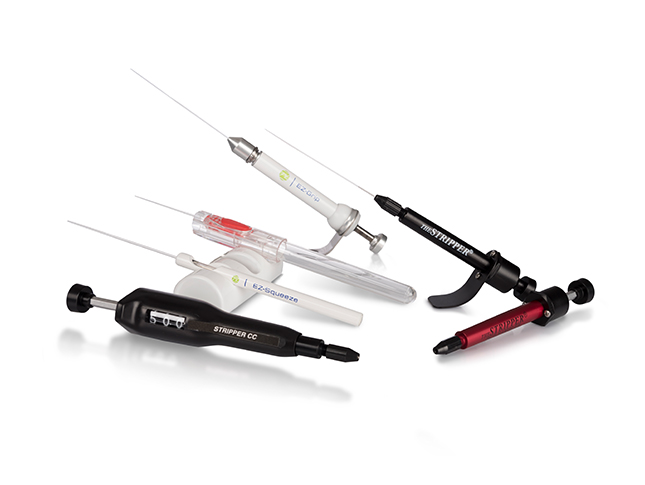A Conversation with Clinical Science Specialist, Chelsea Woody
In this interview, CooperSurgical’s Chelsea Woody, who specializes in genomics within Reproductive Endocrinology and Infertility (REI), offers valuable insights into the strategic approaches to patient care in the presence of genomic information.
This is a great resource for patient-facing REI specialists seeking a nuanced understanding of the evolving field. Chelsea provides a measured exploration of the changing landscape of genomics, offering a perspective on the subtle shifts and advancements that she believes are helping to improve clinical outcomes.
Learn more about Chelsea’s approach to staying abreast of the latest steps forward in technology and approaches, the genomics technologies she finds most valuable, as well as the research projects and innovations that are driving new insights and continual improvement.

Hello Chelsea! Can you tell us about your background and how you became involved in genomics, particularly in the field of Reproductive Endocrinology and Infertility (REI)?
Sure! I completed my BS degree in Neuroscience and started off working in clinical trials with patients with treatment-resistant depression. This experience solidified my desire to introduce a counseling component into my career, but I knew I wanted to do something slightly different.
After several years, I returned to school to obtain my MSc in Human Genetics and Genetic Counseling, from the Emory University School of Medicine. I was lucky to have clinical rotations with two IVF practices and fell in love with the REI specialty.
As a genetic counselor in REI, you interfaced with many other specialties and often work with patients longer-term (months or years).
I took a role at the UCSF Center for Reproductive Health as a Clinical Genetic Counselor (CGC), seeing patients for about three years. I have now pivoted to work for CooperSurgical as a Clinical Science Specialist.
Could you describe your collaboration with professionals on both the lab and clinic sides to ensure comprehensive patient care?

One of my favorite parts of the Clinical Science Specialist role is the chance to interact with both lab and clinical teams. Perhaps the most important effort here is ensuring clear communication between teams and with our laboratory.
Each patient case is different, with its own requirements or unique context!
I often work as a liaison; for example, I may connect a laboratory professional to one of our Clinical Application Scientists (CAS) to troubleshoot a case or link a clinical professional to one of our laboratory genetic counselors to discuss a complex PGT result.
It’s my job to ensure that professionals on both sides have access to the support and tools they need from us so that they can focus on patient care.
Having come from a clinical setting, I have respect and understanding for just how busy these professionals are! Ease of use is a priority, so it is a joy to collaborate and educate my peers on tools like our wonderful genomics portal, and patient education modules via EngagedMD.
Describe an average day as a Clinical Science Specialist?
As clichéd as it sounds, no two days are the same! I am often “on the road” visiting customers to discuss potential genomics education for new staff members, answering questions about current PGT cases, or sharing technology updates from our laboratory.
We interact so frequently with many of our customers; this is a great time to hear personal updates too. A typical day could also include providing an educational presentation at a clinic, or sharing insights at an industry event (which usually turns into a lively discussion!). Our focus is always on how technology is helping to improve clinical outcomes.
What strategies have you seen adopted by clinics to ensure patients are adequately supported, especially when genomic information is presented?
I have seen many kinds of empathetic and personalized approaches by clinicians when discussing a patient’s fertility journey. For example,
Taking the time to acknowledge the context the patient is coming into the appointment with is often a small step that goes a long way for building rapport and enables the patient to feel seen and heard.
This is especially necessary when genetic information is involved, as it is often complex and deeply personal.
An approach I took while working with patients was to take an extra few moments before every telephone call or appointment to gather context the patient was likely coming into the conversation with, from the medical record.
For example, did a nurse call the patient earlier in the day with a negative pregnancy test result? Did the patient share with a coordinator that they have an upcoming international trip? Is the patient currently working with the financial team to resolve a stressful billing dispute?
All this context, even when it is often not directly relevant to our conversation, undoubtedly impacts it, as it is the patient’s current experience with the clinic and with their treatment.
How has the landscape of genomics in reproductive medicine evolved during your career, and how do you stay updated with the latest advancements?
I’d like to preface this answer with the acknowledgement that I have been in this field for just five years – but even in that short span of time, I have seen such incredible progress!
From a practical perspective, it has been a joy to observe the decline in frequency of “no, we can’t do that” to patients (for technical reasons) over the years.
For example, a family that could not pursue PGT-M in the past because of case complexity, can now revisit the option because of recent technological advancements.
This field is advancing so rapidly! I have alerts set up on PubMed for topics of interest, like “preimplantation genetic testing.” I like to listen to fertility podcasts while traveling and find that my LinkedIn homepage often contains relevant updates I may not find elsewhere.

Are there any ongoing research projects or innovations in genomics that you are currently involved in or excited about?
I am currently working with some wonderful colleagues on collating case studies for our PGT-Complete℠ test, to further demonstrate its clinical utility.
This test allows for a more comprehensive picture of the embryos a patient has in storage than standard PGT-A.
We are excited to finalize and present on this case series soon, as it includes impactful examples of the PGT-Complete℠ test’s ability to help prevent certain adverse outcomes from occurring.
What technologies and tools do you find most valuable in the field of genomics for reproductive endocrinology and infertility?
There is incredible innovation happening in this field. I reflected on the value of CooperSurgical’s PGTai℠ technology for example, in a podcast I did last year with Inside Reproductive Health.
As a genetic counselor, I have a special interest in decision-support tools.
In all aspects of REI, we are generating more and more data during a patient’s fertility journey with technologies such as time-lapse embryo imaging and next-generation sequencing.
This can be difficult to parse through in a clinically impactful way, especially with the backdrop of evolving clinical protocols and society guidelines. I greatly respect Viotti et al¹. for the group’s publication of tools to aid in embryo storage and transfer decision-making.

In your opinion, how do you see the role of genomics evolving in the field of reproductive medicine in the coming years? How can fertility professionals stay ahead of the curve?
I am especially excited to see how the genomics component of infertility evaluation evolves in the coming years. This may include, for example, a gene panel to evaluate for factors that may contribute to or cause infertility, such as a genetic variant predisposing to increased risk for embryo aneuploidy above maternal age.
Another inspiring development is the implementation of Primary Template-directed Amplification (PTA), CooperSurgical’s novel approach to DNA amplification for embryo biopsy samples. This innovation represents the first major advancement to DNA amplification in PGT since 2009 and marks a milestone in improving the quality of DNA amplification in embryo samples.
The pace at which genomics is evolving in the REI field is exciting, but can be overwhelming – especially when one has other interests and responsibilities.
One great way to stay ahead of the curve is to hire a genetic counselor for your fertility practice!
What is your proudest career achievement?
When I was in a clinical role, I would periodically receive results from patient feedback surveys.
I was always delighted to receive feedback along the lines of “I felt very listened to,” “She enabled me to make informed decisions about IVF,” or “She constantly puts my needs above all else.”
As genetic counselors, we strive to serve as advocates for our patients and it is an absolute privilege to know my patients have felt that from me.
Get in touch.
We are proud to have a large team of global, board-certified genetic counselors in the industry.
Our counseling team has specialized expertise in reproductive genetic testing.
¹ Viotti M, Victor AR, Barnes FL, Zouves CG, Besser AG, Grifo JA, Cheng EH, Lee MS, Horcajadas JA, Corti L, Fiorentino F, Spinella F, Minasi MG, Greco E, Munné S. Using outcome data from one thousand mosaic embryo transfers to formulate an embryo ranking system for clinical use. Fertil Steril. 2021 May;115(5):1212- 1224. doi: 10.1016/j.fertnstert.2020. 11.041. Epub 2021 Mar 6. PMID: 33685629
²Stanley KE, Giordano J, Thorsten V, Buchovecky C, Thomas A, Ganapathi M, et al. Causal genetic variants in stillbirth. NE J Med. (2020) 383:1107–16. doi: 10.1056/NEJMoa1908753






